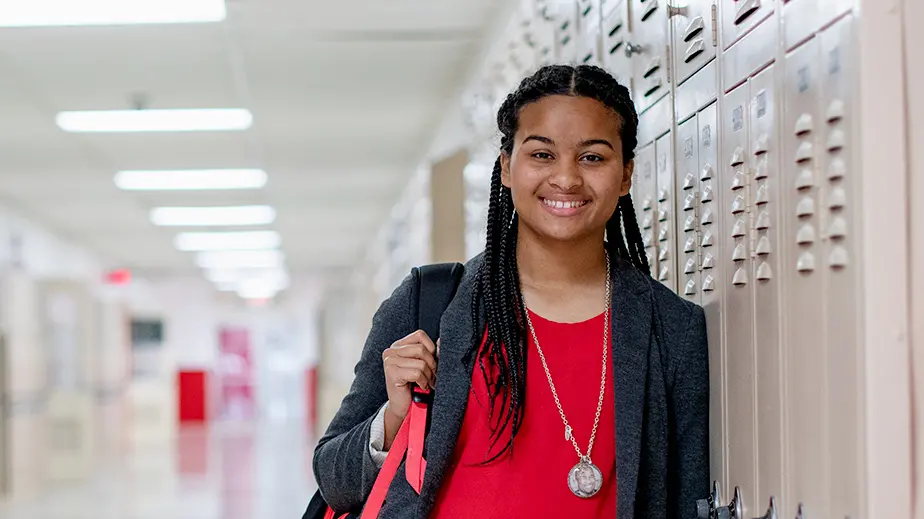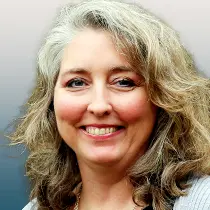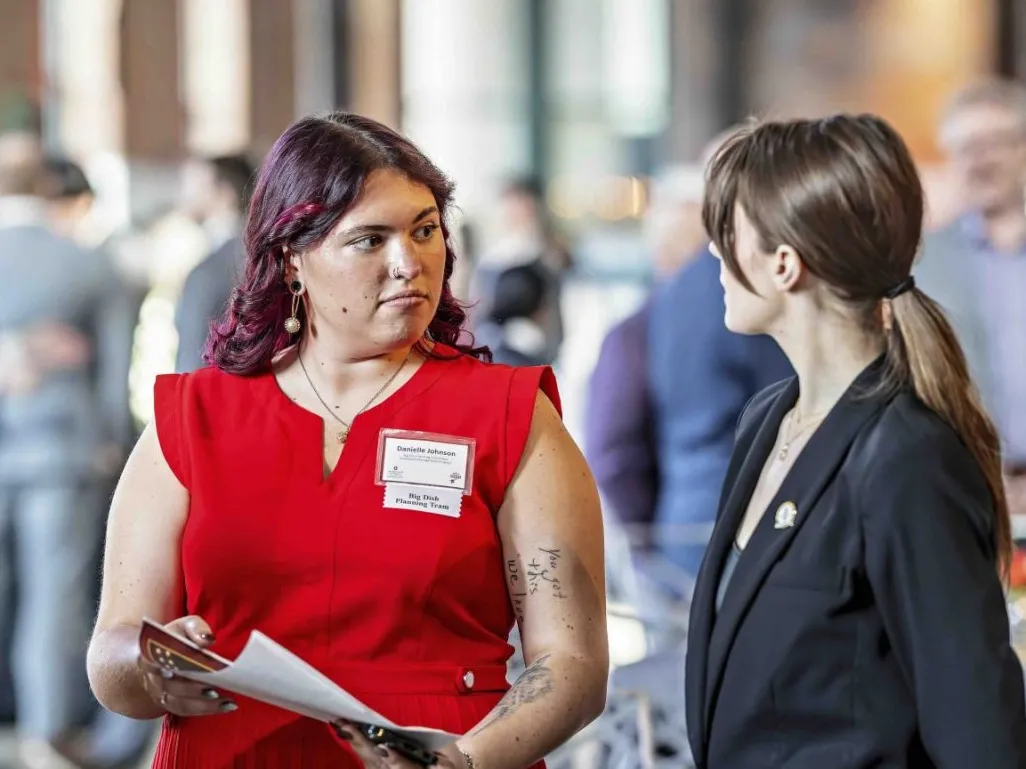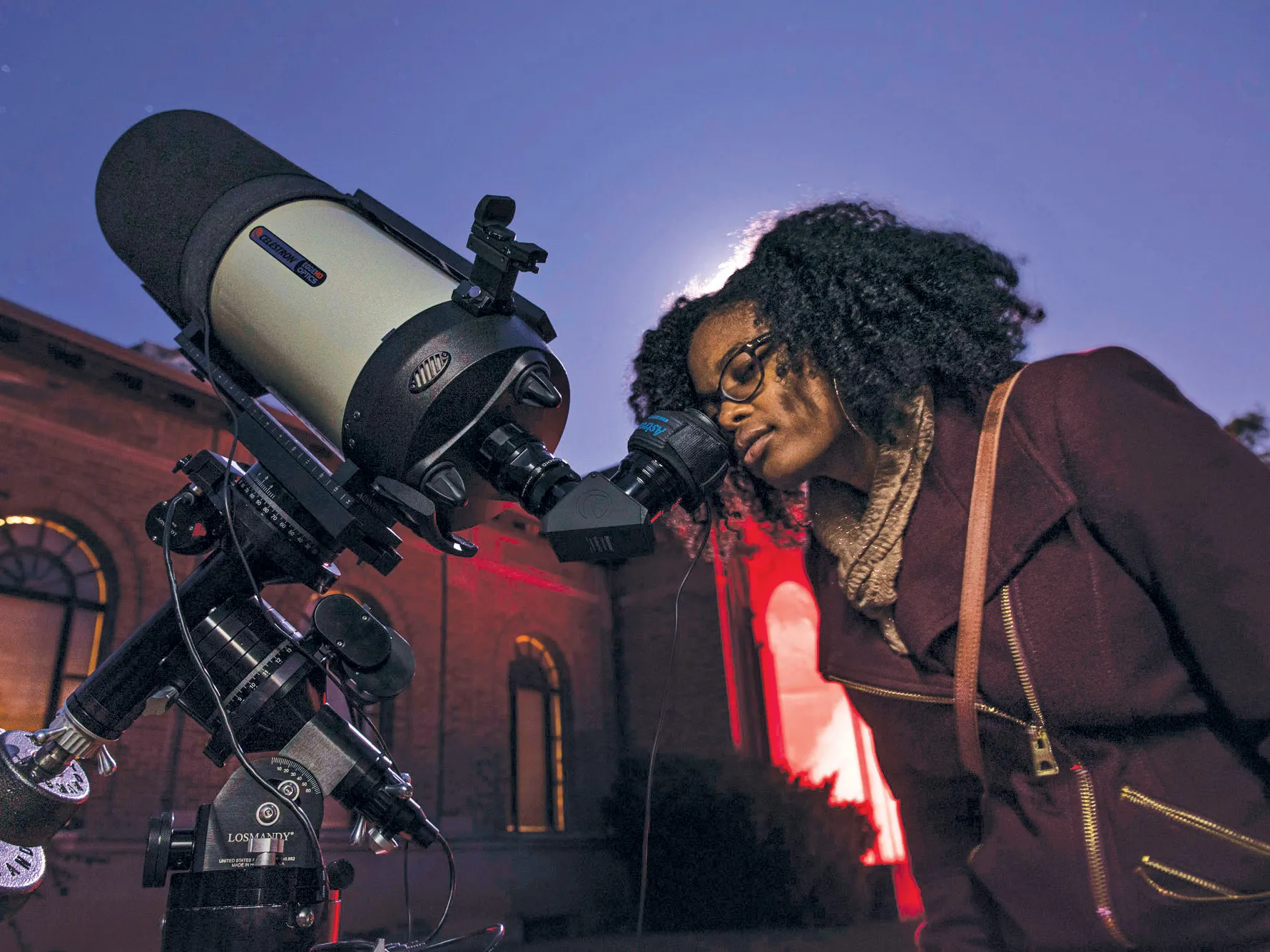At 18, she’s graduating high school and college
Getting a head start on her mission to one day cure MS, the determined Lizzie Chung is driven by her family’s experience.

Lizzie Chung will move on from this setting at Delphos Jefferson High School as well as from Ohio State Lima in May. That’s when she’ll earn both her high school diploma and her bachelor’s degree in biology. (Photo by Jo McCulty)
In May 2022, Lizzie Chung will earn a bachelor’s degree in biology from The Ohio State University. Two weeks later, she’ll graduate from Delphos Jefferson High School in northwest Ohio.
That’s possible because, for the past four years, Lizzie earned college and high school credits while attending Ohio State Lima, an option through the College Credit Plus Program. The soon-to-be 18-year-old plans to earn medical and doctoral degrees before she turns 30.
“Lizzie never takes no for an answer,” says Courtney Roeder, Lizzie’s academic advisor and the student success director at Ohio State Lima. “If someone tells her she can’t, she will find a way that she can. She understands that being successful means going beyond academics and has built relationships with her faculty members since day one.”
-
Your late father, who was diagnosed with multiple sclerosis before you were born, influenced your plans to become a doctor and researcher. How will your family’s experience inform your practice?
I know how difficult it was for my family to go through that, not just physically, but financially, emotionally, spiritually. It is such a huge burden. But I also know that I would be strong enough to carry it for other people because I had to carry the grief of losing my dad. MS can be emotionally difficult for me, and I use this emotional difficulty to fuel my passion for patient-centered care.
-
What do you aspire to be?
I want to be known as a pioneer in the field of multiple sclerosis and as somebody who sees different perspectives. Rather than just looking at certain aspects of things, I want to combine biology, physics and chemistry to be able to create better treatments.
-
Where would you be if you hadn’t come to Ohio State Lima straight out of middle school?
Going to college has given me the opportunity to expand my horizons. It’s giving me new perspective. If I was still in high school, I would just feel like I was lost, like I’m not pushing myself or I’m just doing the bare minimum of what I can do. For me, one of the most important things is to make sure that I’m pushing my boundaries and trying to stretch them.
-
Why is intellectual curiosity important to you?
Having intellectual curiosity is something that drives me to the next thing. If I was happy with where I was and with what I know, then I do not think it would allow me to make as much of an impact as I’m hoping to in the future.
-
How do you think finishing high school and college at the same time will make your mission to cure MS more possible?
Finishing both at the same time gives me more time in the future to study and search. A big part of college — the biology degree I am getting and majoring in a STEM field — has to do with critical thinking, analysis, reasoning, problem-solving. Being able to take these classes at Ohio State gives me an opportunity to start early on fine-tuning those skills.
-
Do you look for a way to relate everything you do to your passion?
It does not matter what it is, I am looking for a way to relate it back to finding a cure. Even with my extracurriculars and hobbies, I do not want to do something just to do it. I like to draw and paint because I enjoy it, but also because it opens another area of our brain for us to take more perspective from and to think more about the world around us.
-
What will you do in your upcoming gap year after your graduations?
I’m going to be doing a lot of work on my research, working and applying to medical school. I’ll also be working with volunteer organizations and, hopefully, I can work with patients and shadow doctors more. I’ll have a lot going on. I don’t want to just sit there. There’s no way I could do that.



